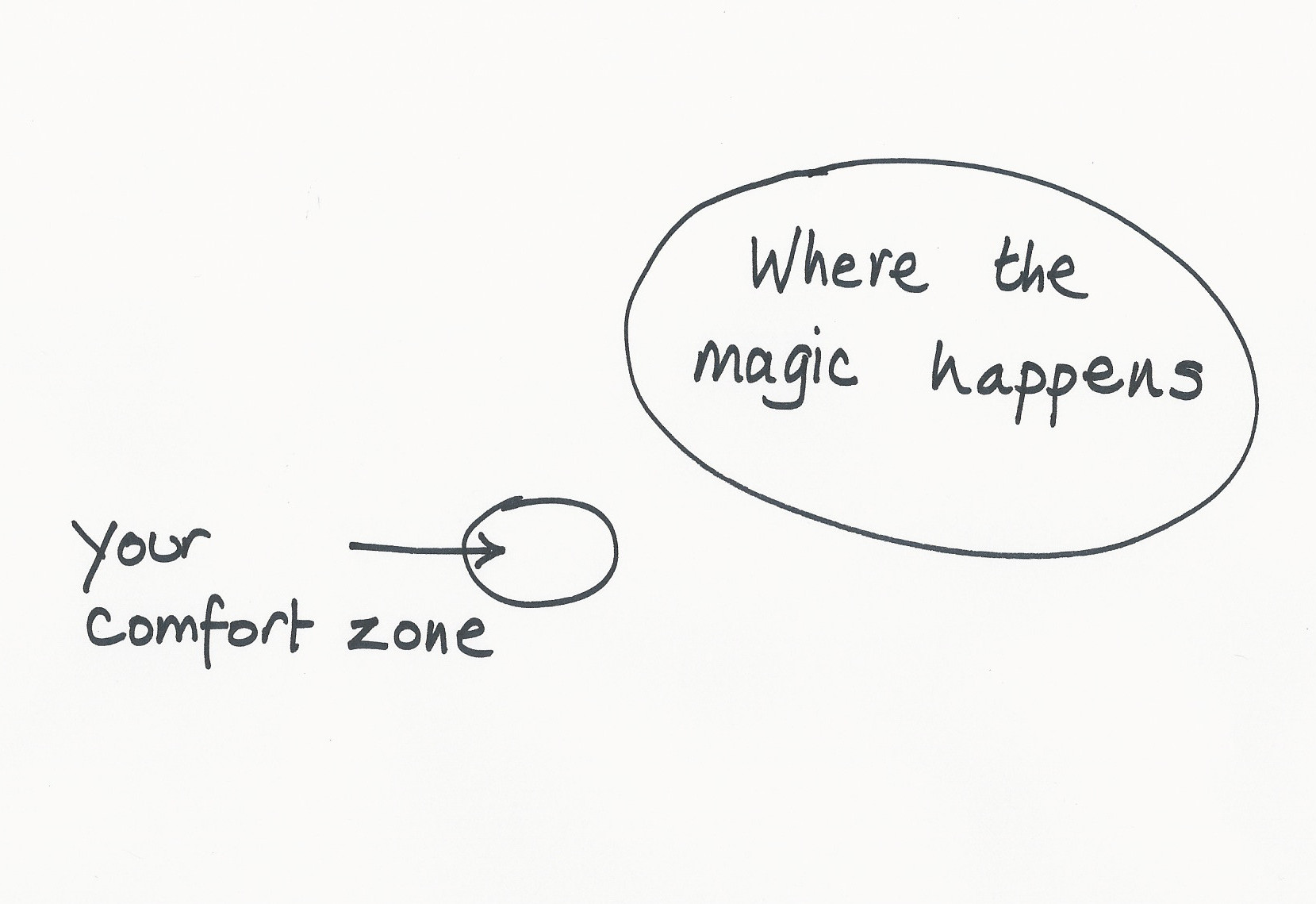Get outside your comfort zone we are told, it’s good for you. Outside your comfort zone is where you experience greater success and improved performance. Outside your comfort zone is where the magic happens.
Or does it?
Three assumptions behind the comfort zone principle need to be debunked.
1. Leaving your comfort zone is beneficial, but staying is detrimental
The idea that leaving your comfort zone is good for you, implies being comfortable and relatively anxiety free is bad for you. The comfort zone is a state where we are less focused, which hinders personal and professional growth. Challenge, however, increases our anxiety and concentration, but it produces better results.
This may all be true. Yet, living without stress is not particularly bad for you. It’s not unhealthy to be at ease. Often it gives us self-assurance.
Being in your comfort zone allows you to feel secure of who you are and confident in what you are doing. It allows you rest and relaxation.
The ideal situation is, of course, being able to step out and step back in to your comfort zone as and when you need to. This means being in control.
2. You make the choice to step out of your comfort zone.
The perception is you are in charge of any changes in your life. It’s up to you to step out from where life is easy into new areas where you are challenged. Perhaps you finally decide to join a gym, or after grappling with the offer of a new position in your company you accept, even though it means moving 3,000 miles away from home.
However, often circumstances beyond our control force you to move outside your comfort zone. What about the child whose father takes a new job in an unfamiliar city? He or she has no choice but to leave their home, school and friends and start afresh. A job loss may give you no option but to move elsewhere for work.
Other times, we have options but the best one takes us far outside our comfort zone. When your husband is offered an excellent opportunity with his company 3,000 miles away, this may be the most prudent choice for your family, even though it is the hardest. Perhaps it’s an easy decision to marry the person you love and want to spend the rest of your life with, but the difficult part is moving half way across the world to be with them.
Often circumstances allow little or no control over leaving your comfort zone.
Instead, leaving your comfort zone can make you overwhelmed, stressed and unable to function to your full potential.
3. The transition from comfort zone to outside your comfort zone is smooth and gradual.
The impression is you can control any modifications in your life by making slow, deliberate and carefully considered steps. In other words, you make one small change at a time.
In reality, it doesn’t happen like this. Instead, many changes seem to come at once. Then, stepping outside your comfort zone is traumatic. When you’ve recently bought a house and had a baby, then your husband is offered the “too good to miss”opportunity with his company 3,000 miles away. You’ve just moved house and given birth, now you have to leave your career, family and friends to start life in a new country.
When many things in life change at the same time, you most likely experience turbulence.
[widget id=”text-15″ title=”0″]



[…] Quelle: rachelbritton.wpengine.com […]